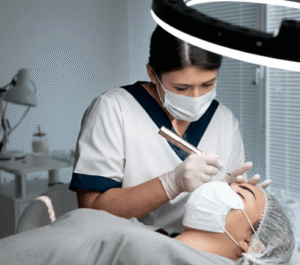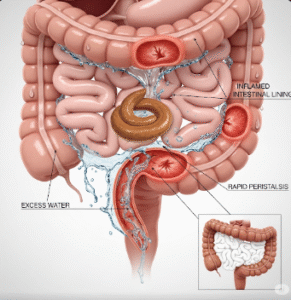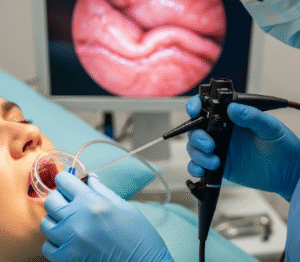Overview
Dizziness is a common symptom described as a sensation of lightheadedness, unsteadiness, or feeling faint. Some people may feel as though the environment is spinning (vertigo), while others experience a sense of imbalance or disorientation.
In Korea, dizziness is a frequent reason for neurology and ENT (ear, nose, throat) consultations. With advanced diagnostic technology, including vestibular tests, imaging, and specialized balance clinics, Korean hospitals provide comprehensive care for patients experiencing dizziness.
Key Facts
Highlights:
➡️ Dizziness is a symptom, not a disease, with multiple possible causes.
➡️ Often linked to inner ear disorders, low blood pressure, or neurological conditions.
➡️ Can be temporary (e.g., dehydration) or chronic (e.g., vestibular dysfunction).
➡️ May be accompanied by nausea, headaches, hearing problems, or balance issues.
➡️ Korea offers specialized balance and vertigo clinics with advanced treatment options.
What is Dizziness?
Dizziness refers to a disturbed sense of spatial orientation, which may include:
- Vertigo – spinning sensation.
- Presyncope – feeling faint or about to pass out.
- Disequilibrium – imbalance or unsteadiness while walking.
- Nonspecific dizziness – vague feelings of disorientation.
What Symptoms are Related to Dizziness?
Associated symptoms may include:
- Lightheadedness or fainting sensation
- Spinning or tilting of surroundings
- Loss of balance or unsteadiness
- Blurred vision
- Headaches or migraines
- Nausea or vomiting
- Ringing in the ears (tinnitus)
- Difficulty concentrating
What Causes / Possible Causes?
Highlights:
➡️ Inner ear disorders (vestibular neuritis, labyrinthitis, Ménière’s disease, benign paroxysmal positional vertigo).
➡️ Circulatory issues – low blood pressure, dehydration, anemia, heart disease.
➡️ Neurological causes – migraines, stroke, multiple sclerosis, brain tumors.
➡️ Medications – side effects of antibiotics, blood pressure drugs, sedatives.
➡️ Psychological causes – anxiety, panic attacks, hyperventilation.
➡️ Metabolic causes – low blood sugar, thyroid disorders.
When Should I See My Doctor?
Seek urgent medical attention if dizziness is accompanied by:
➡️ Sudden severe headache
➡️ Weakness, numbness, or difficulty speaking (possible stroke)
➡️ Chest pain or shortness of breath
➡️ Sudden hearing loss or vision changes
➡️ Frequent or prolonged dizziness interfering with daily life
Care and Treatment
Treatment depends on the underlying cause and may include:
Highlights:
➡️ Medications – anti-vertigo drugs (meclizine, betahistine), anti-nausea medication, antibiotics for infections.
➡️ Vestibular rehabilitation therapy (VRT) – exercises to improve balance.
➡️ Lifestyle modifications – hydration, slow position changes, diet adjustments (especially in Ménière’s disease).
➡️ Psychological support – therapy for anxiety-related dizziness.
➡️ Surgical interventions – in rare cases for structural ear problems.
Treatment Options in Korea
Korea offers advanced diagnostic and treatment facilities for dizziness, including:
Highlights:
➡️ Comprehensive vestibular testing (VNG, caloric test, rotary chair test).
➡️ ENT and Neurology collaboration in top hospitals.
➡️ Specialized dizziness & balance clinics in Seoul and Busan.
➡️ Cutting-edge imaging (MRI, CT) for neurological assessment.
➡️ Rehabilitation programs for chronic balance disorders.
➡️ International patient support services at major hospitals (e.g., Seoul National University Hospital, Asan Medical Center).













